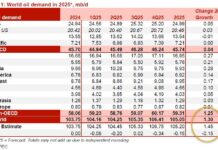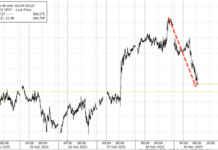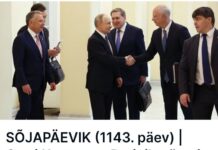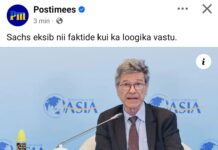Zelensky has finally begun to think about his country’s post-war reconstruction plans as suggested by what he said late last week with regard to the need for Ukrainian refugees to return once the conflict ends. The challenge though is that he also accused unnamed EU countries of exploiting his citizens as cheap labor, and if they allow them to remain there, then Ukraine will struggle to rebuild. Here are his exact words, which will then be analyzed in the larger context of this conflict’s rapidly evolving dynamics:
“Let’s be honest: There are many Ukrainians abroad. In some countries, they have been seen as a cheap labor force. And now, they realize Ukrainians are often more skilled than their own citizens. I say: ‘Look, give me a bit more air defense, and I’ll tell everyone to come back immediately. And they reply, ‘No, let those who work here stay, but the rest should return.”
For starters, the immediate context concerns the Ukrainian Armed Forces’ desertion rate, which the Associated Press estimated to be more than 100,000 since February 2022. Zelensky also acknowledged this problem late last week but downplayed it at the same time. Nevertheless, it’s clear that his generals must urgently replenish these losses as well as those from the battlefield, ergo the latest report from Russia’s Foreign Intelligence Service (SVR) about how they might soon drop the draft age to 18.
These immediate military imperatives can be exploited by the EU as the humanitarian pretext for not deporting Ukrainian refugees in order to keep them in the bloc so that they can either remain as cheap labor or soon become it. Accordingly, it’s unlikely that any of them will make any serious moves to repatriate them so long as the conflict continues, but it’s also possible that it might end later this year. That’s because Trump campaigned on doing so and Zelensky just suggested that he thinks it’s possible.
Speculation about the timeframe and terms aside, the latter of which could include some of the two dozen compromises that were recently proposed at the end of this analysis here, the end of the conflict could then instantly lead to more grassroots pressure upon EU governments to encourage those refugees to return. The two countries where this might soon become a pressing issue are Germany and Poland, which have around 1.2 million and 988,000 Ukrainian refugees respectively.
If the AfD enters the government after February’s elections, then this could see Germany implementing a robust plan for repatriating them, but the party might be excluded from any coalition and whatever emerges afterwards might want to keep those Ukrainian refugees precisely because they’re cheap labor. The situation might be different in Poland, however, since the ruling liberal-globalist coalition has been taking a much tougher stance towards Ukraine and immigration ahead of May’s presidential election.
They want to replace the outgoing conservative-nationalist president with one of their own in order to prevent the opposition from vetoing their plans to radically change Polish society, thus explaining one of the reasons why they’re presenting themselves as stricter on these issues than their rivals. At the same time, however, Polish society is souring on Ukrainian refugees as proven by a survey from a publicly financed research institution last fall and Politico’s latest report on Poland’s changing demographics.
Accordingly, the ruling liberal-globalists might be tempted to capitulate to public pressure to at least table a repatriation plan before May’s election if the conflict ends before that, but they’d then be in a dilemma since the argument can be made that Poland’s economic needs require keeping them. The pertinent data was cited last April in this analysis about how “Poland’s Implied Plans To Deport Draft-Eligible Ukrainian Men Could Push It Into A Recession” and remains relevant to this day.
The gist is that Poland’s abysmal birthrate, which is the worst in Europe, is far below replacement so the economy stands to suffer unless radical systemic changes are made or more foreigners are brought in. In that scenario, Poland could eventually fall even further behind Germany, thus leading to it becoming even more subordinate to its neighbor than it already is. The end effect could very well be that Germany peacefully rises as the next European hegemon at the expense of Poland’s long-term national interests.
All this insight is relevant to the subject of Ukraine’s post-war reconstruction and the role that its EU-based refugees could play since forthcoming developments might lead to Germany and/or Poland either encouraging their return or incentivizing them to stay. With Trump poised to return to the White House later this month pledging to prioritize an end to the Ukrainian Conflict, it was predictable that there’d be some jostling for these economic assets, but it’s still unclear what their ultimate fate will be.
























